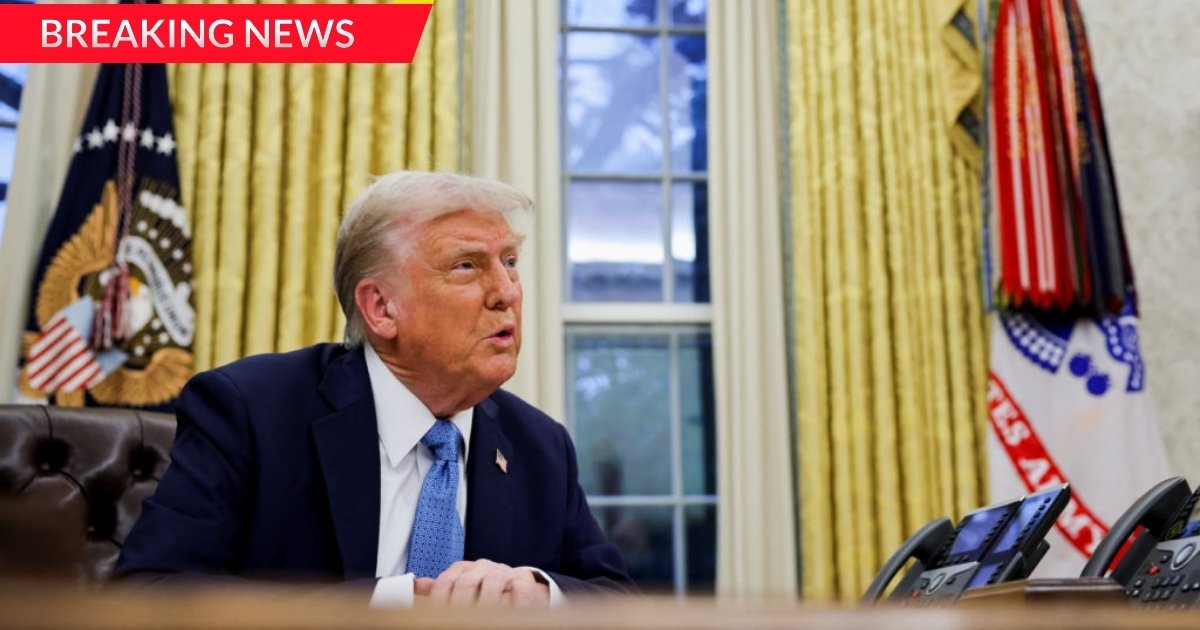
President Donald Trump has launched a sweeping investigation into the U.S. import of critical minerals. It signals a potential shift in trade policy that could lead to new tariffs.
Furthermore, the global demand for minerals is essential for technology, energy, and defense as it continues to grow. Thus, this probe raises questions about America’s economic strategy and its dependence on foreign sources.
Scope of the Critical Mineral Investigation
Recently, President Donald Trump initiated a Section 232 investigation under the Trade Expansion Act of 1962. The investigation directed the Department of Commerce to assess whether imports of critical minerals and their derivatives products threaten U.S. national security.
The probe initiated encompasses a wide range of materials, including rare earth elements, cobalt, nickel, and uranium. These elements are essential for defense systems, renewable energy technologies, and advanced manufacturing.
1. U.S. Geological Survey (USGS) Mineral Commodity Summaries
- Import Reliance: The United States was 100% net import-reliant for 15 critical minerals in 2024, with more than 50% reliance on an additional 29 minerals.
- Import Sources: China remains a dominant supplier, providing up to 24 nonfuel mineral commodities for which the U.S. has significant import reliance.
- Domestic Recycling: In 2023, the total value of domestically recycled critical minerals was $10 billion, accounting for 23% of the total value of domestically recycled old scrap.
2. Scope of the Investigation
The investigation aims to evaluate:
- The extent to which imports of processed critical minerals and their derivative products threaten U.S. national security.
- The impact of market distortions caused by foreign producers, including price manipulation and export restrictions.
- Strategies to enhance domestic production and processing capabilities to reduce reliance on foreign sources.
3. Possible Outcomes
Depending on the findings, the investigation could lead to the imposition of new tariffs on imported critical minerals and their derivatives. Such a step aims to bolster domestic industries and reduce strategic vulnerabilities.
What Triggered Trump’s Latest Trade Probe?
President Trump’s directive to investigate critical mineral imports was due to escalating concerns over national security and economic stability. Key factors triggering the probe are:
- Heavy Reliance on Foreign Imports: The U.S. remains significantly dependent on foreign sources for minerals essential for defense, technology, and infrastructure. In 2024, the U.S. was 100% import-reliant for 15 critical minerals and over 50% reliant for an additional 29, with China being a dominant supplier for many of these minerals.
- National Security Concern: Processed minerals are vital for military applications, including jet engines, missile guidance systems, and secure communications. The administration expressed concerns that overreliance on foreign sources, particularly from adversarial nations, could jeopardize U.S. defense capabilities and economic resilience.
- Foreign Market Manipulation: The administration cited instances of foreign producers engaging in price manipulation, overcapacity, and arbitrary export restrictions. These are done using their market dominance to gain geopolitical and economic leverage over the U.S.
- Escalating Trade Tension: The probe follows China’s announcement of export restrictions on rare earth elements, intensifying the trade conflict between the two nations. The response of the U.S. government aims to counteract these measures and reduce dependency on Chinese products.
Trump’s Trade Tactics
Trump’s trade policies mark a pronounced shift toward economic nationalism, characterized by aggressive tariffs and a focus on reshoring critical industries.
1. Key developments
- “Liberation Day” Tariff: In April 2025, Trump dubbed “Liberation Day,” announcing a 10% universal tariff on all imports. It includes higher rates for 57 countries, including a 54% tariff on Chinese goods. Later, such a move was justified by declaring a national emergency to address the persistent U.S. trade deficit.
- Critical Mineral Probe: Trump ordered a Section 2023 investigation into U.S. reliance on imported critical minerals, citing national security concerns. Furthermore, the probe targets materials like cobalt, nickel, uranium, and many more, with China being the major supplier.
- Reciprocal Tariff Policy: Trump’s administration introduced individualized reciprocal tariffs, imposing high duties on countries with trade surpluses with the United States. Thus, this policy aims to rectify perceived non-reciprocal trade practices.
2. Economic and Strategic Implications
- Consumer Impact: The Tax Foundation estimates that the tariffs amount to an average tax increase of nearly $1,300 per U.S. household in 2025.
- Market Reactions: Financial markets have responded negatively, with stock indices experiencing volatility amid concerns over trade tensions and inflationary pressures.
- International Relations: Allies and trade partners have expressed apprehension over the unilateral imposition of tariffs, straining diplomatic relations and leading to retaliatory measures.
How Dependent is the U.S. on Foreign Mineral Imports?
In 2024, the United States remained dependent on foreign sources for several critical minerals essential to its economy and national security. According to the U.S. Geological Survey’s 2025 Mineral Commodity Summaries, the U.S. was 100% import-reliant for 15 minutes and over 50% import-reliant for an additional 31 nonfuel mineral commodities.
Moreover, China plays a dominant role in this supply chain, serving as the leading producer of 30 of the 50 critical minerals identified by the U.S. government. Notably, from 2020 to 2024, the U.S. imported at least 29 minerals commodities from China, including:
- Yttrium: 100% import-reliant, with 93% sourced from China.
- Rare Earth Elements: 80% import-reliant, with 56% from China.
- Graphite: 100% import-reliant, with 43% from China.
Thus, the heavy reliance on imports, mainly from China, exposes the U.S. to supply chain disruption, especially during escalating trade tension. For example, in response to U.S. tariffs, China has imposed export restrictions on minerals like rare earth elements, directly impacting industries like electric vehicle manufacturing.
Conclusion
President Donald Trump’s 2025 critical minerals probe represents a pivot moment in the U.S. trade policy. National security concerns and a border push for economic self-reliance drive it.
With the country dependent on foreign, particularly Chinese, suppliers for essential minerals, the investigation indicates a renewed commitment to safeguard the strategic supply chain. Therefore, the outcome of this probe could redefine America’s economic posture in a rapidly evolving geopolitical environment.
